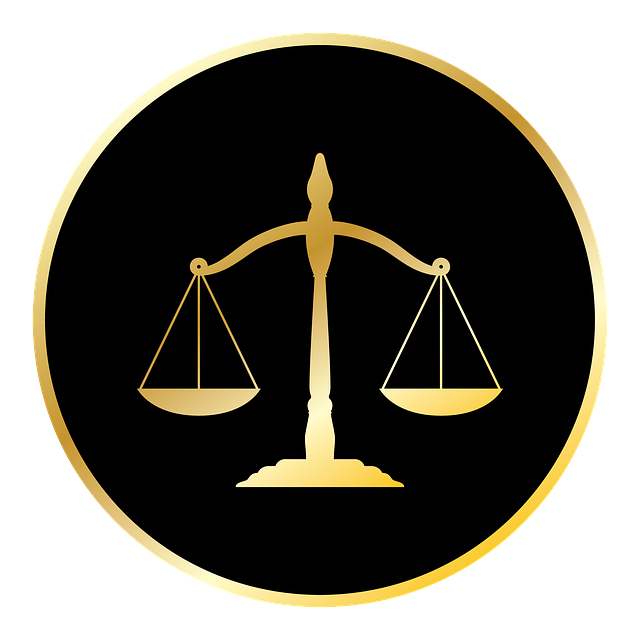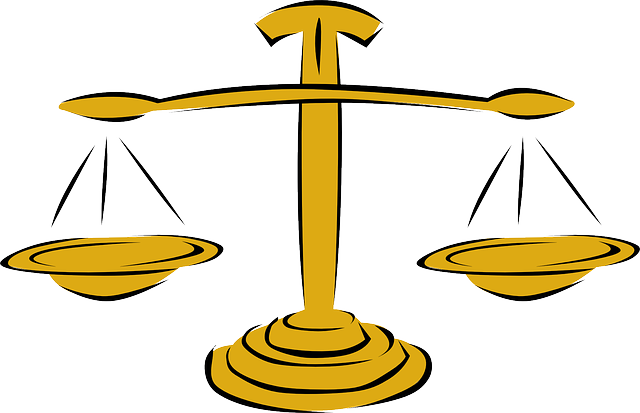
Category: Expertise in criminal defense
Expertise in Criminal Defense: Navigating the Complexities of Legal Defense
Introduction
In the intricate realm of criminal law, expertise in criminal defense stands as a beacon of hope for individuals facing legal challenges. This comprehensive guide delves into the multifaceted world of criminal defense expertise, exploring its definition, historical evolution, global impact, and future prospects. By the end of this article, readers will gain a profound understanding of how specialized knowledge and skills shape the outcomes of criminal cases, ensuring fairness and justice for all.
Understanding Expertise in Criminal Defense
Definition and Core Components
Expertise in criminal defense refers to the specialized knowledge, skills, and tactics employed by legal professionals to advocate on behalf of individuals accused of crimes. It encompasses a broad range of disciplines, including criminal law, procedure, evidence, forensics, and trial strategy. The core components of this expertise are:
- Legal Knowledge: Profound understanding of criminal codes, statutes, and case law applicable to various jurisdictions.
- Investigative Skills: Ability to gather and analyze evidence, interview witnesses, and reconstruct crime scenes effectively.
- Strategic Planning: Development of robust defense strategies tailored to each client’s unique circumstances.
- Courtroom Advocacy: Proficiency in presenting cases before judges and juries, including opening statements, cross-examination, and closing arguments.
- Negotiation and Alternative Dispute Resolution (ADR): Skilled negotiation for plea bargains or utilizing ADR methods like mediation and arbitration.
- Ethical Practice: Adherence to professional ethics and standards, ensuring client confidentiality and vigorous representation.
Historical Context and Evolution
The concept of criminal defense expertise has evolved over centuries, shaped by societal changes, technological advancements, and shifts in legal practices.
- Early Years: Historically, criminal defense was often characterized by a battle of orators, where advocates argued their cases before kings, parliaments, or juries. The focus was primarily on public speaking and rhetoric.
- Rise of Legal Specialization: As legal systems became more complex, the need for specialized knowledge grew. In the 19th century, the concept of criminal defense attorneys emerged, focusing on advocating for the accused within the evolving court systems.
- Modern Era: The late 20th century saw a significant advancement in criminal defense expertise with the integration of scientific evidence, advanced investigative techniques, and technological tools. This period also witnessed the rise of public defender systems to ensure access to legal counsel for all.
Significance and Broad Landscape
Expertise in criminal defense is pivotal for several reasons:
- Ensuring Fairness: It guarantees that individuals accused of crimes receive a robust defense, fostering fairness within the justice system.
- Protecting Rights: Criminal defense attorneys safeguard constitutional rights, ensuring due process and equal protection under the law.
- Challenging Injustices: Skilled defenders can expose systemic issues, racial biases, or procedural irregularities, leading to reforms and a more equitable legal system.
- Avoiding Wrongful Convictions: Comprehensive defense strategies minimize the risk of wrongful convictions, upholding societal trust in the justice system.
Global Impact and Trends
International Influence
Expertise in criminal defense transcends national boundaries, with international organizations and legal communities contributing to its development and dissemination.
- Global Legal Standard-Setting: Organizations like the United Nations (UN) and the World Legal Forum set guidelines and promote best practices for criminal defense, ensuring consistency across jurisdictions.
- International Cooperation: Cross-border cooperation in criminal matters, such as extradition agreements and mutual legal assistance, relies on competent defense counsel.
- Human Rights Advocacy: International human rights organizations and lawyers play a crucial role in safeguarding the rights of accused individuals, especially in countries with less robust legal systems.
Key Global Trends
- Access to Justice: A growing global focus on ensuring access to quality legal representation for all, leading to initiatives promoting public defender systems and legal aid.
- Technological Integration: The adoption of case management software, digital evidence analysis tools, and video conferencing for remote court appearances is becoming widespread.
- Specialization and Diversification: Criminal defense practitioners are increasingly specializing in specific areas like white-collar crime, drug offenses, or human trafficking, enabling more focused advocacy.
- Internationalization of Legal Services: Law firms are expanding globally, providing international legal expertise to support multinational corporations and individuals with complex criminal issues.
Regional Variations
The practice of criminal defense varies across regions due to differences in legal systems, cultural norms, and economic development:
| Region | Notable Features | Challenges |
|---|---|---|
| North America | Strong public defender system, robust court-appointed counsel, and advanced use of technology | Overburdened public defender offices, lack of resources for indigent defendants |
| Europe | Diverse legal systems with common law, civil law, and mixed models; strong human rights protections | Variations in legal aid availability across EU member states, challenges in cross-border cooperation |
| Asia | Rapidly growing economies with evolving criminal justice systems; increasing international collaboration | Limited access to legal services in rural areas, cultural barriers to accepting defense counsel |
| Africa | Diverse legal traditions, colonial-era codes, and customary law; emerging human rights initiatives | Overstretched legal aid providers, inadequate training for local practitioners |
Economic and Social Factors Influencing Criminal Defense
Impact of Economic Disparities
Economic inequality significantly influences criminal defense expertise:
- Indigent Defendants: Individuals with limited financial resources often rely on court-appointed counsel, which can result in less experienced or overburdened defenders.
- Private Retainers: Wealthier clients can afford top-tier legal representation, creating a disparity in access to high-quality defense.
Social and Cultural Influences
- Stigma and Perception: In some communities, individuals facing criminal charges may face social stigma, impacting their willingness to engage with legal representatives.
- Language Barriers: Non-native speakers might struggle to communicate effectively with their lawyers, affecting the quality of defense.
- Cultural Misunderstandings: Cultural differences can lead to misunderstandings between clients and counsel, potentially hindering the attorney-client relationship.
Advanced Tools and Technologies in Criminal Defense
Digital Age Innovations
The digital era has revolutionized criminal defense practice:
- Case Management Software: Streamlines case organization, allowing attorneys to manage client information, court dates, and evidence efficiently.
- Forensic Analysis Tools: Advanced software enables digital forensics experts to analyze complex data, such as cell phone records, computer files, and social media content.
- Video Conferencing: Remote courtroom appearances and depositions are now common, facilitated by reliable video conferencing platforms.
- Artificial Intelligence (AI): AI-powered tools assist in legal research, contract analysis, and predictive analytics, improving efficiency and accuracy.
- Blockchain Technology: Used for secure document sharing, smart contracts, and verifying the integrity of digital evidence.
Ethical Considerations
While technology offers numerous benefits, it also raises ethical concerns:
- Privacy and Data Security: Criminal defense attorneys must ensure client data privacy and protect sensitive information from breaches or unauthorized access.
- Digital Divide: The digital tools mentioned above might widen the gap between well-resourced firms and those with limited technological capabilities.
- Misuse of Technology: There is a risk of using technology for unethical practices, such as hacking or unauthorized surveillance.
Strategic Planning and Case Management
Essential Components
Effective case management is a cornerstone of successful criminal defense:
- Client Intake and Assessment: Understanding the client’s background, circumstances, and goals is crucial for tailoring a defense strategy.
- Evidence Organization: Creating a comprehensive record of evidence, including physical, digital, and witness testimonials, is vital for building a robust defense.
- Case Theory Development: Defining the narrative and legal arguments to be presented in court, considering both strengths and weaknesses of the case.
- Judicial Research: Thoroughly researching applicable laws, previous cases, and judicial interpretations to support legal arguments.
- Witness Management: Strategically managing witness locations, availability, and preparation to ensure their reliability and effectiveness.
- Plea Bargaining Strategies: Negotiating plea bargains requires a delicate balance between accepting a reduced charge and ensuring the best possible outcome for the client.
Case Management Software Benefits
- Streamlined case tracking and organization
- Automated reminders for critical deadlines
- Efficient document management and secure file sharing
- Integration with legal research databases
- Improved communication with clients and colleagues
Trial Strategy and Tactics
Building a Compelling Defense
Trials demand meticulous planning and execution:
- Opening Statement: Setting the tone, presenting the defense theory, and outlining key evidence to be presented.
- Witness Examination: Effective questioning techniques, including direct, cross-, and re-examination, to challenge or establish witness testimonies.
- Evidence Presentation: Demonstrating the admissibility and relevance of evidence while addressing potential objections from prosecution.
- Closing Argument: Summarizing the defense case, highlighting inconsistencies in the prosecution’s narrative, and advocating for an acquittal or lenient sentence.
- Judicial Persuasion: Understanding the judge’s predispositions and tailoring arguments accordingly to influence their decisions.
Alternative Dispute Resolution (ADR)
ADR methods offer viable alternatives to trial:
- Mediation: A neutral third party facilitates negotiations between the prosecution and defense, aiming for a mutually acceptable resolution.
- Arbitration: Similar to mediation but with a binding decision made by an arbitrator, which may be preferred in complex cases.
- Plea Bargaining: Negotiated agreements between prosecutors and defenders, resulting in guilty pleas or reduced charges.
Challenges and Ethical Dilemmas
Common Challenges Faced by Criminal Defense Attorneys
- Resource Constraints: Overworked attorneys may struggle to provide adequate representation, especially for indigent clients.
- Complex Cases: High-profile or technically complex cases demand significant time and expertise, potentially straining legal resources.
- Prosecution Resources: Well-resourced prosecution offices may have an advantage in gathering evidence and presenting their case effectively.
- Statute of Limitations: Time constraints can impact the preparation of defenses, particularly in cases with strict time bars for filing charges.
- Media Scrutiny: Public interest in high-profile cases may subject defense attorneys to intense media scrutiny and public opinion.
Ethical Dilemmas
- Confidentiality vs. Public Interest: Balancing client confidentiality with the need to disclose information to protect the public or prevent future crimes.
- Conflict of Interest: Navigating potential conflicts when representing multiple clients or having personal connections to case participants.
- False Evidence or Perjured Testimony: Dealing with situations where evidence or witness testimonies are questionable, requiring careful handling to avoid ethical breaches.
- Proportionality of Sentence: Advocating for fair sentencing while recognizing the need to deter crime and protect society.
Professional Development and Career Pathways
Staying Current in a Dynamic Legal Field
Continuous learning is vital for criminal defense attorneys:
- Legal Education: Attending continuing legal education (CLE) courses, workshops, and seminars to stay updated on changing laws, court rulings, and trial techniques.
- Specialization: Many practitioners choose to specialize in specific areas of criminal law, such as white-collar crime, drug offenses, or youth justice.
- Mentorship: Learning from experienced mentors can provide valuable insights and guidance for younger attorneys navigating complex cases.
- Networking: Building relationships with colleagues, judges, and legal professionals can lead to collaborations and referrals, enhancing career opportunities.
Career Advancement
- Private Practice: Many criminal defense attorneys establish their own firms, offering expertise in niche areas or serving specific client demographics.
- Public Defender Offices: These organizations provide legal representation for indigent defendants, often handling a high volume of cases with limited resources.
- Government Agencies: Working within prosecutors’ offices or law enforcement agencies allows for a different perspective on criminal justice.
- Academic Roles: Some attorneys transition to academic careers, teaching criminal law and conducting research in specialized areas.
- Non-Profit Organizations: Non-profits dedicated to criminal justice reform offer opportunities to advocate for systemic changes.
Conclusion
Criminal defense is a critical component of any just society, requiring a combination of legal expertise, strategic thinking, and ethical conduct. The field continues to evolve with technological advancements, social changes, and shifting legal landscapes. By staying informed, adapting to new tools and trends, and upholding ethical standards, criminal defense attorneys play a vital role in ensuring fairness, due process, and individual rights within the criminal justice system.









